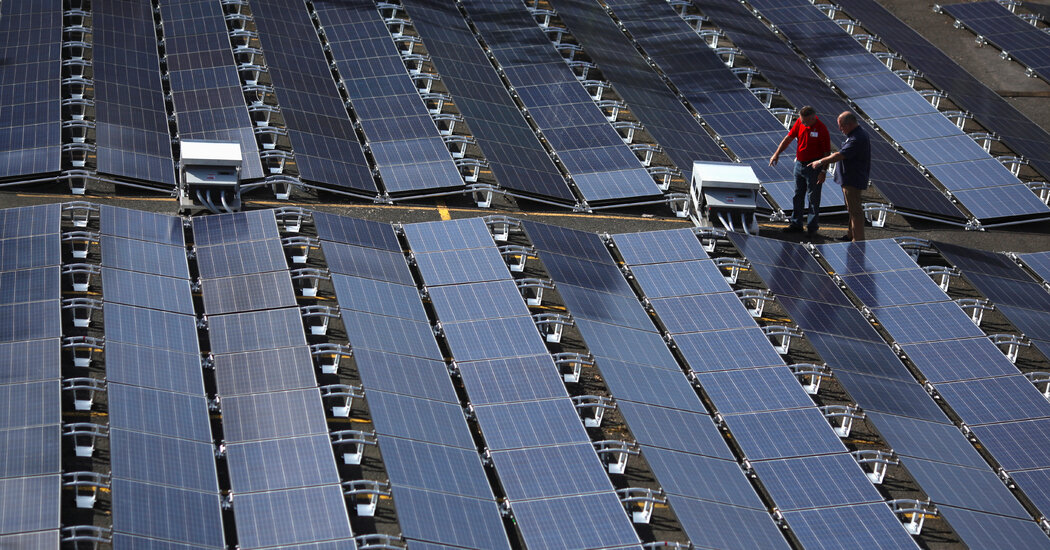- cross-posted to:
- [email protected]
- [email protected]
- cross-posted to:
- [email protected]
- [email protected]
The federal government plans to reimburse state and local governments that rebuild damaged public buildings to be more energy resilient.
The Federal Emergency Management Agency will begin paying to install solar panels on schools, hospitals and other public buildings that are rebuilt after disasters, making them more resilient against future disasters while reducing greenhouse gas emissions.
The change, set to be announced on Tuesday, reflects the disaster agency’s decision to use federal dollars to expand renewable energy as it copes with worsening climate shocks.
The number of billion-dollar weather disasters keeps rising, straining the country’s ability to respond, as well as the ability of local officials to keep offering basic services to residents.
“If you’re installing solar panels, you are creating more energy independence,” Deanne Criswell, FEMA’s administrator, said in an interview.
The change comes amid major shifts in America’s response to disasters. Insurers are withdrawing from high-risk areas. People are donating directly to survivors through the crowdfunding platform GoFundMe, although that money largely benefits the wealthy. FEMA is overhauling its programs to help individual disaster survivors, after acknowledging that the current programs often fail to provide adequate support.



How about before the disasters too?
Makes more sense to do it after if you’re going to do this. Usually after a disaster you have to do something with the roof, electric service equipment, and even the electric utility equipment. These are also things that need to be touched when you’re just simply adding solar. So if there’s going to be aid following a disaster, it makes logistical sense to tack on solar since the overall cost of doing it with everything else should, in theory, cost less.
Obviously the costs may not be kept lower if there’s a way for contractors to game the system.